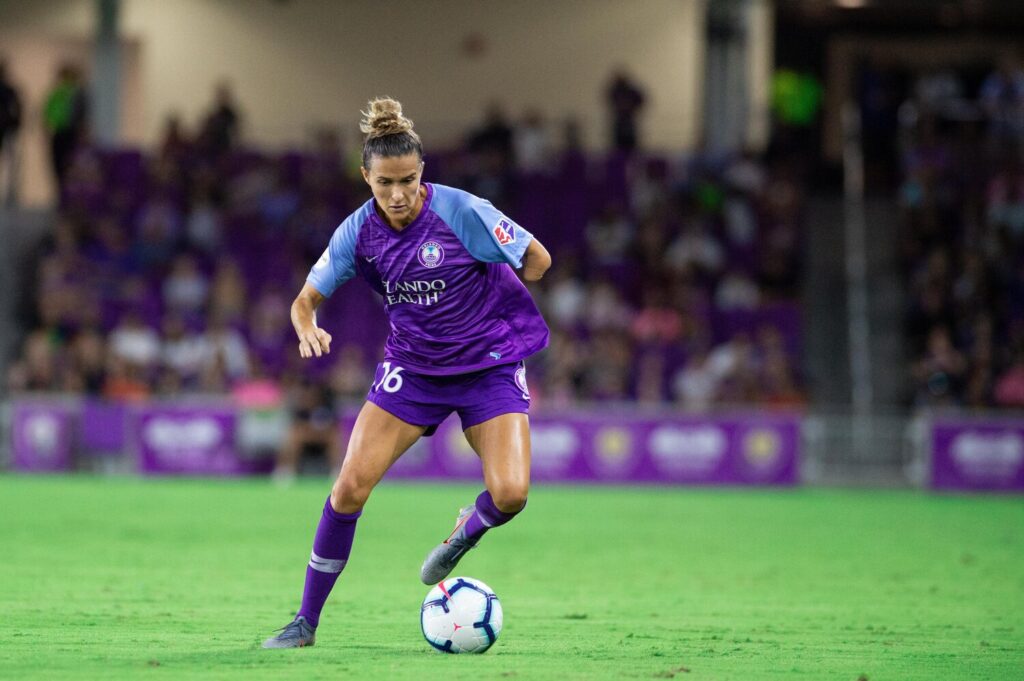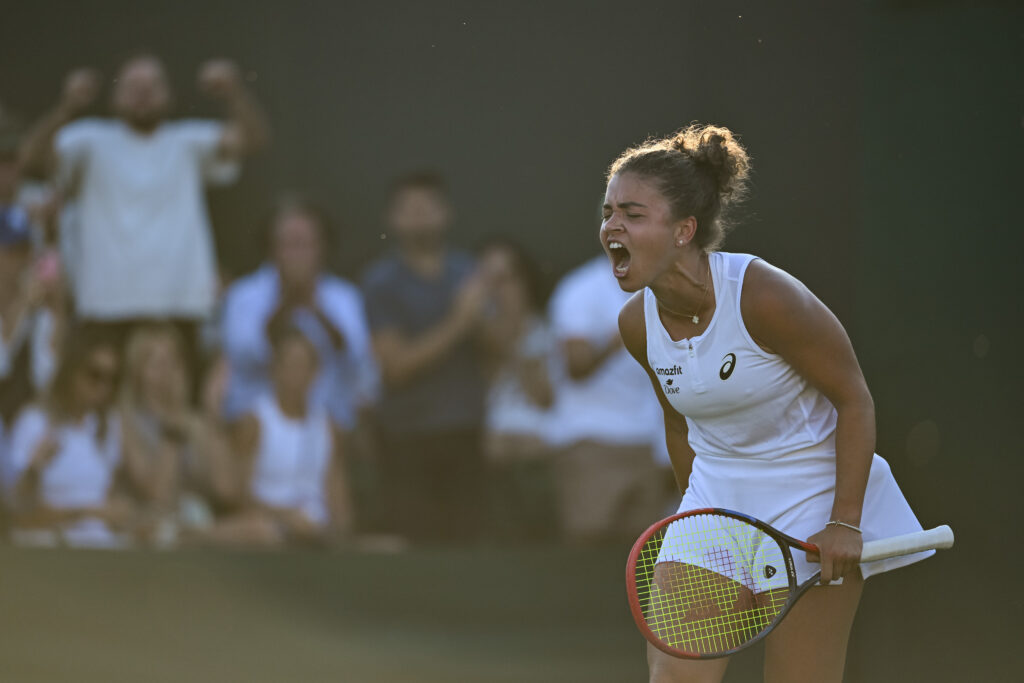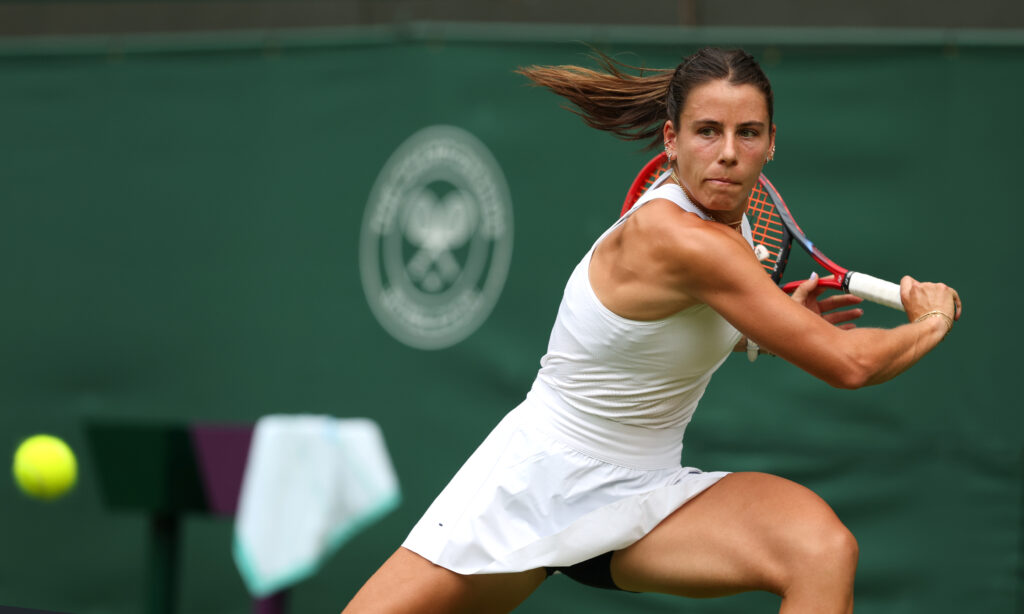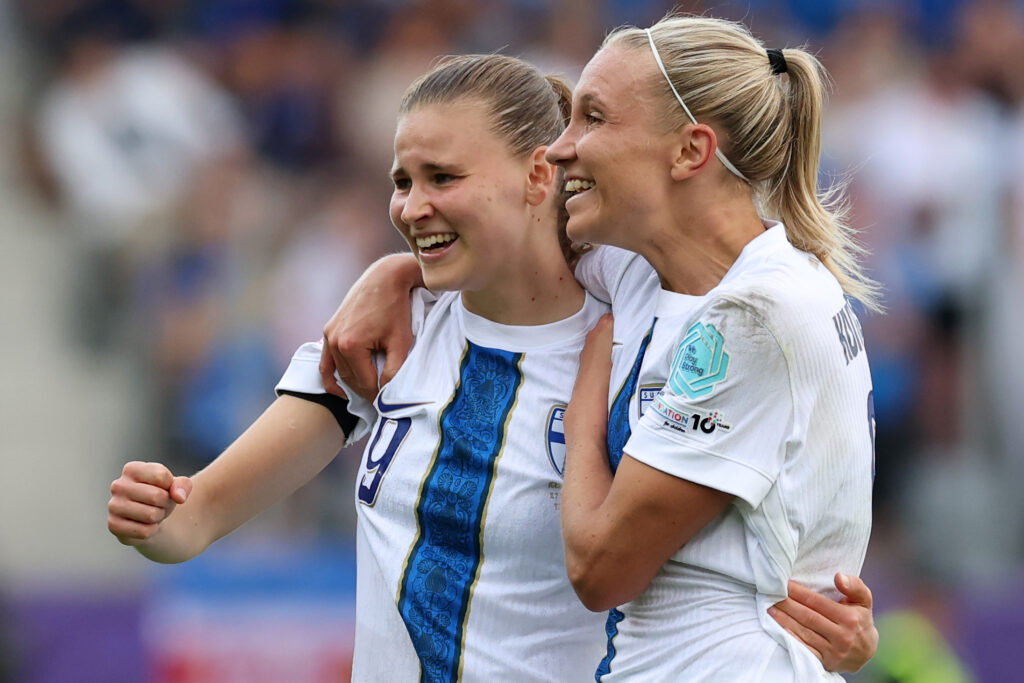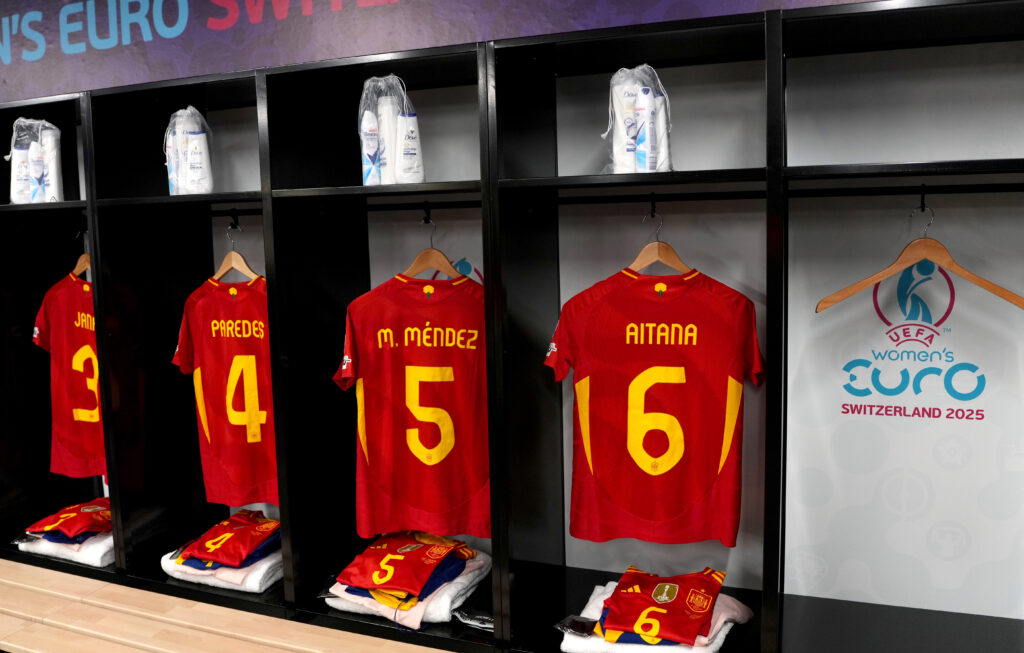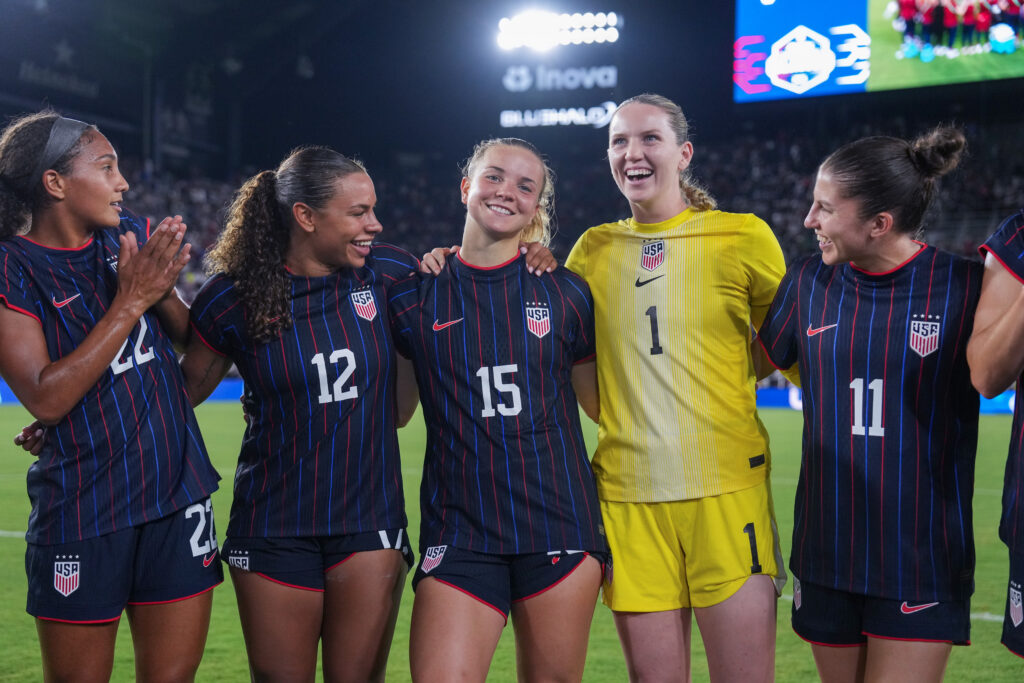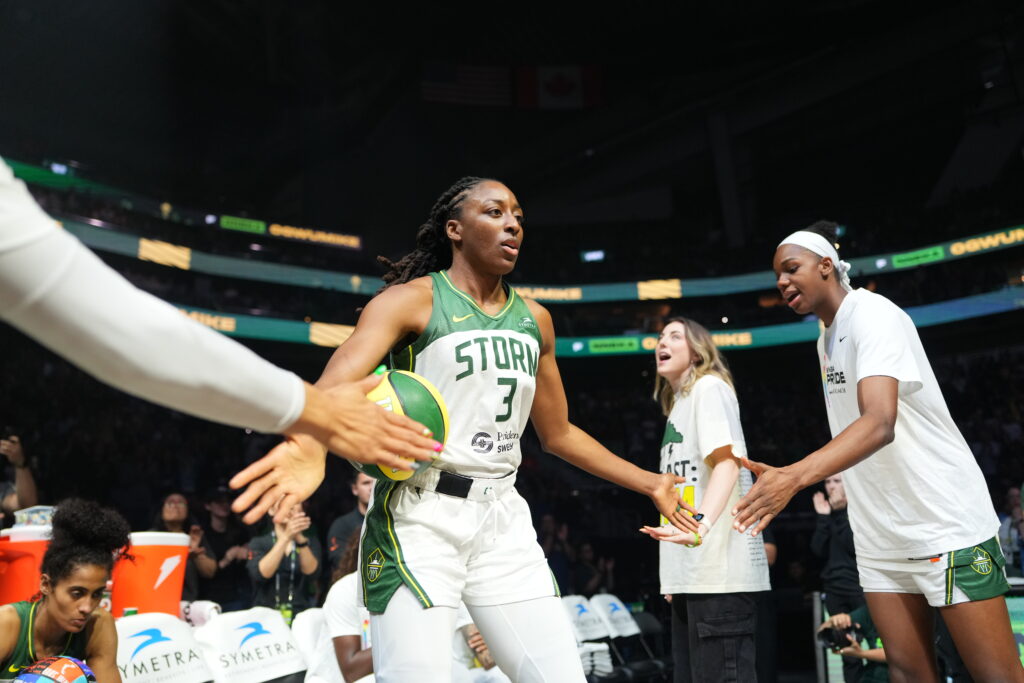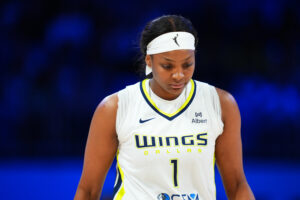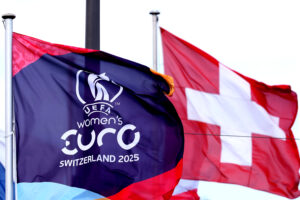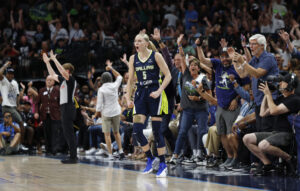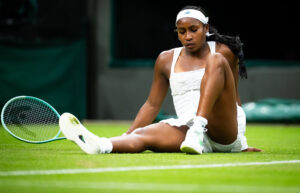Carson Pickett is a defender for the Orlando Pride of the NWSL and the Brisbane Roar of the W-League. A graduate of Florida State, she helped lead the Seminoles to their first ever NCAA Championship in 2014. Below, she spoke to Just Women’s Sports about her life and career as a professional athlete who was born without a left forearm and hand, how her mindset has changed over the years, and what Orlando needs to do to rebound from its disappointing past season.
I’ve read articles that label you as disabled, but I have played with you and against you, and disabled feels off. What is the terminology you prefer?
I would say limb different because that’s what I advocate for. It’s not just arms, it’s legs and other body parts. I don’t like saying I’m advocating for disabilities in general because that can mean so many different things, and I don’t want people to think I’m advocating for something that I’m not.
You were born limb different and that limited some of the sports you could play as a child. How did you begin playing soccer and what was that experience like as a kid?
My parents were both great athletes. My dad played college soccer and had the opportunity to play professionally. My mom played college basketball. I definitely grew up in a family of athletes. Many people talk about how athletes often challenge themselves more and push themselves more. I think that was true for my parents in that they’ve always pushed themselves. So, when they had a child who might have needed to be pushed a little harder because they weren’t sure if she was going to sink or swim, their mentality was, “We’re going to challenge her.”
Growing up, I played a lot of sports. My parents never wanted me to feel different compared to everyone else. I think nowadays, with so much social media, a lot of families want their kids to be surrounded by people who are different from them so that they can learn from them. It’s two ways of thinking and neither of them is right or wrong, or better or worse. For us, my parents chose to go with the idea that I’m not any different than anyone else, and I can do anything that anyone with two hands can do.
At a certain point, I realized that I liked team sports better than individual sports — I liked the camaraderie. I honestly chose soccer because my friend group was the strongest in that sport. And when you’re younger, that’s most important. I’m also super close with both of my parents, so being able to train with my dad was fun for me. I think training with him is what drew me closer to soccer — it bonded the two of us.
Did people treat you differently on the field then? And do you think it affects your play at all?
When I was 12, I got called for an illegal throw-in and that mortified me. It wasn’t a club game and it’s not that serious at 12, but a referee said that it was an illegal throw-in. Ever since then, I’ve been mortified to pick up a ball and throw it in. Sydney Leroux has been begging me to do it. She says, “It could be such a big breakthrough. If they let you do it, then you’ve just done a throw-in. If they don’t, we will go to the ref and it will become a massive issue because you can still do it.” I’ve been waiting to do it, but I’m so nervous. I know that it could be a big breakthrough and even push people with limb differences to do things out of their comfort zone.
In terms of if I think it affects me: honestly, no. Even during certain drills in practice, I never think: “Oh, here we go. You have to be physical, so I’m going to struggle.” Naturally, we all have weaknesses. It’s not that my weakness is my arm, but pushing people off the ball when they’re going towards my left side is obviously a lot harder. I can’t wrap my hand around and hold people off as much. It’s something that I’m aware of, but it’s definitely not a weakness or a struggle that I’m nervous about.
For college, did you know you wanted to stay in Florida?
No, actually. When I went on trips to different universities and colleges, I really fell in love with the University of Texas. I loved the team there and the coach was awesome. I never thought about it as being too far from home. But when I visited Florida State, I fell in love with the feeling of being on campus. That’s what I tell so many young girls now: “It’s hard to explain which college is right for you. Sometimes you just step on campus and feel at home.”
My family definitely had an influence on my final decision, though. My grandparents and parents have always supported me and they come to every one of my games. I’m an only child, so it was easier for them to see me at FSU. I knew that I didn’t want them to have to get on a plane to visit or only see me play twice a year. I wanted them there all the time.
How do you think your mindset has changed over the years in terms of how you process all of the attention your limb difference receives?
In college, I remember when reporters would come to the ACC tournaments. Everyone wanted to be reported on because it showed that you were a good player. But I remember that every single time that a reporter would talk to me or interview me, it always had to do with my arm. I would complain to my parents all the time, saying, “I just want to be known as a good soccer player. I don’t want to be known as someone with one arm who’s also a soccer player.” The reporters weren’t doing anything wrong — they just didn’t realize that I wanted to be more than the Florida State player who has one arm.
Fast forward to the pros, and the picture of me and the two-year old fan comes out. Seeing how many people I could reach completely changed my mindset. When I was in college, I just wanted to be a soccer player. I remember being on campus in the summer, in the dead heat in Florida, and wearing a hoodie the first couple of weeks. I would make excuses to not show my arm. Those times were tough for me because I had to make a decision of do I want to stand out? Are people going to stare? Does it matter to me?
Now, I’m more mature and I realize that when people stare at me it may be because they’ve never seen something like it before. Now, I want them to ask me what happened because then I can educate more people about limb difference. It’s not that I want to stand out, but I want to help people who are like me. And I know I’m also reaching people who have both of their hands, but who may be struggling with other problems. Everyone has their own story, everyone is different, everyone has gone through struggles and has weaknesses. It’s how you use that story and those weaknesses and the struggle to best help people in the world. Now that I’m able to reach so many diverse groups, it’s really become more of a blessing.
Have you had to make adjustments in terms of workouts or lifting?
I didn’t lift much in high school. It wasn’t until college that I learned lifting could actually help you. Since I had never lifted before, I would go into the gym with my strength coach at Florida State and he would say, “Show me a way you can squat” and I would just figure it out. I think him pushing me to get in there and figure out a way to lift was really helpful. He could have just excused me from lifting, but I think being put in uncomfortable situations and being pushed to figure it out was best for me.
You’re in your fifth NWSL season and your third year playing year-round. How has your experience been playing year-round with half of the year being in Australia?
After my rookie year in Seattle, I decided I wanted to go home and train and be with my family. Being with my family was amazing, but I realized that it’s really hard to make yourself work out every single day, no matter how mentally strong you think you are. Especially, when you are training for a season that is four months away. It’s tough. Luckily, my agent asked me if I was interested in playing overseas and, after that first off-season, I was ready to go.
I wanted to go to Australia to be pushed out of my comfort zone and meet new people in a new environment. Obviously, I was nervous because I was going to another country and I did not know a single person. Usually, in soccer, you always know somebody. It was scary at first, but I could tell that I was growing as a person. Physically, there are times when I come back, after such a long NWSL season, and my body hurts. But I choose to do that and I know that sometimes it’s going to hurt. I am mentally happier training and playing on a team than being by myself. Obviously, it’s tough playing year-round, but I couldn’t do anything else at this point. I love it.
Do you have any plans for after you end your soccer career?
I have a few different things I want to do. Some days, I want to go get my master’s degree and maybe be a college coach. Other days I want to be an athletic advisor who helps freshmen with the transition to college. On top of that, my parents have pushed me to go into public speaking. I’m developing my story now. I have everything written down, but I just have to find the right words. I need to figure out what my storyline would be and what the point of my presentation would be. I’m working through that now and trying to talk to a lot of public speakers who have done this before.
There’s a lot of uncertainty surrounding the season, but regardless, I have to ask, how does Orlando break what’s become a kind of curse? What’s going on?
Oh, man. I know. I just think last year, and the year before wasn’t good enough. We struggled with cohesiveness — with players in and out due to the World Cup and medical reasons — but it was no excuse, it just wasn’t clicking. And that’s not blaming any certain people. I just think that because we struggled early in the year and dug ourselves a hole, our mentality faltered later in the season, when it should have been every time we stepped on the field, “we’re winning this game and not losing again.” I’m not saying that we went out there and were like, “Oh, well, we’re going to lose today. Who cares?” It was never like that. We worked our butts off, even in training. We worked probably even harder, but it just wasn’t clicking.
Whatever the reason was, we have a second year coach and a chance to make it right this year. Everyone seems to have the right attitude about it. This year, hopefully, is the year. We have a lot of veterans coming back, a lot of people who played at a really high level, so I’m hoping that this is the year that Orlando is not at the bottom of the table and that we can even make the playoffs and things like that. Right now it’s hard to say just because we’ve haven’t trained together as a team. But neither has anyone else. It’s really hard to say how we’re going to look, but I’m hoping we’re going to look great and we’re going to be making the playoffs this year.
